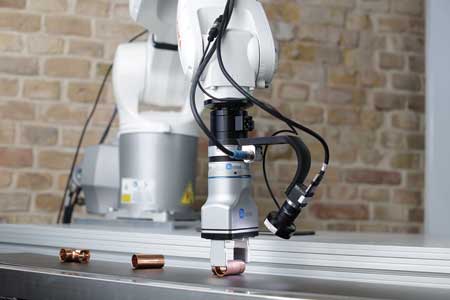
"What sets the MIRAI 2 AI-Vision software apart from traditional vision solutions is the ability to operate with real factory data without the need for CAD data, controlled light, visual-feature predefinition or extensive knowledge of computer vision," said a company spokesperson.
AI software company Micropsi Industries has announced MIRAI 2, the latest generation of its AI vision software for robotic automation. Building upon the success of its predecessor, MIRAI 2 comes with five new features that enhance manufacturers' ability to reliably solve automation tasks with variance in position, shape, color, lighting or background. Available immediately, the latest release offers users greater reliability, easier and faster deployment and robot-fleet scalability.
Gary Jackson, CEO of Micropsi Industries, highlighted the company's dedication to innovation through close collaboration with partners and customers across various sectors such as automotive, electronics and home appliances: "By integrating new features and capabilities into our offerings, we can address the unique challenges faced by these industries even more effectively," Jackson said. "In addition to new features, the company has introduced dedicated service teams to further strengthen its commitment to customer success. Recognizing the complexities of implementing advanced AI in robotic systems, we have assembled expert teams that combine our in-house talent with select system integration partners to ensure that our customers' projects are supported successfully, no matter how complex the requirements."
MIRAI is an advanced AI-vision software system that enables robots to dynamically respond to varying conditions within their factory environment, including variance in position, shape, color, lighting and background. "What sets MIRAI apart from traditional vision solutions is the ability to operate with real factory data without the need for CAD data, controlled light, visual-feature predefinition or extensive knowledge of computer vision," said the spokesperson.
MIRAI 2 offers customers improved reliability due to the ability to detect unexpected workspace situations; a new, automated way to collect training data; and the option to run the software on the highest industry-standard PCs, resulting in higher dependability in rough factory conditions. The new feature, which assists in recording the required data for training the robot, also means that training and deploying MIRAI 2 is easier and faster. In addition, with MIRAI 2 a force-torque sensor is no longer required for most applications, which means lower cost and more robust performance.
Moreover, MIRAI skills-trained guidelines that tell robots how to behave when performing a desired action-can now be easily and quickly shared with an entire fleet of robots.
The five new features available to MIRAI 2 users are:
- Robot skill-sharing: This feature allows users to share skills between multiple robots, at the same site or elsewhere. If conditions are identical (lighting, background, etc.), little or no additional training is required in additional installations. MIRAI can also handle small differences in conditions by recording data from multiple installations into a single, robust skill.
- Semi-automatic data recording: Semi-automatic training allows users to record episodes (of data) for skills without having to hand-guide the robot, reducing the workload on users and increasing the quality of the recorded data. MIRAI can now automatically record all the relevant data-users only need to prepare the training situations and corresponding robot target poses.
- No F/T sensor: Training and running skills is now possible without ever connecting a force/torque sensor. This reduces cost, simplifies tool geometry and cabling set-up, and overall, makes skill applications more robust and easier to train.
- Abnormal condition detection: MIRAI can now be configured to stop skills when unexpected conditions are encountered, allowing users to handle these exceptions in their robot program or alert a human operator.
- Industrial PC: The MIRAI software can now be run on a selection of industrial-grade hardware for higher dependability in rough factory conditions.
For more information contact:
Micropsi Industries USA
300 Brannan St., Ste. #101
San Francisco, CA 94107
718-440-7353
www.micropsi-industries.com